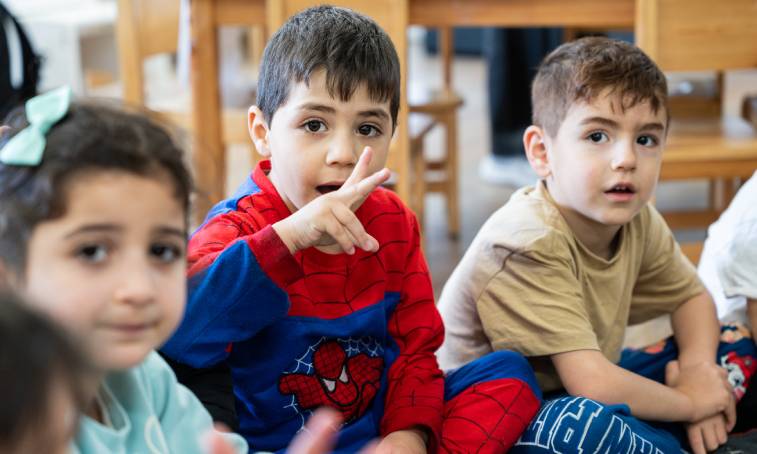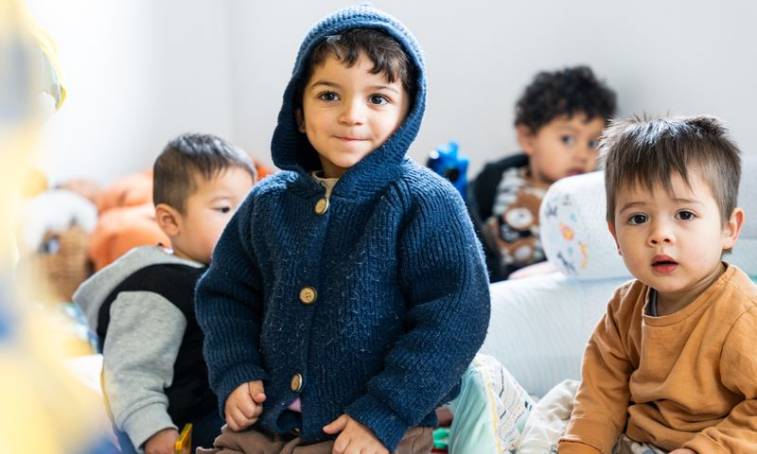Ever felt unsure about how to teach your child to lead with confidence instead of just following the crowd? Leadership isn’t about bossing others; it’s about making thoughtful choices, but many parents feel stuck, not knowing where to start.
Even little ones can show childhood leadership, but helping them do it takes more than just praise or play. From decision-making to resilience, it’s tricky to balance encouragement without pushing too hard or stepping in too soon.
At Next Generation Kindergarten, we guide children to find their voice, share ideas, and grow into thoughtful leaders. We help time-pressed parents in Chester Hill raise capable, caring kids with big ideas and kind hearts.
Understanding Childhood Leadership
To nurture young leaders, we first need to understand what leadership means in early childhood and how it naturally appears in a child’s everyday actions.
Defining what leadership means for kids
Leadership in children takes a steady hand and a brave heart. It’s about small decisions, thoughtful actions, and confident voices. At Next Generation Kindergarten, we see leadership blossom when children demonstrate kindness, ownership, and stand up for fairness during play and projects. By age three, many kids are already ready for gentle leadership growth through everyday tasks and teamwork at our centres across Chester Hill and Yagoona.
Types of leadership relevant to children
There’s more than one way a child can lead. Self-leadership shows up in getting dressed without being reminded. In our preschool classrooms, team leadership is demonstrated through shared puzzles or playground buddy duties. And once confidence builds, a simple act like organising a clean-up among friends reveals early community leadership. All types are supported in our daily rhythm – whether through our garden projects or role-play activities that make space for every voice.
Why Leadership Skills Matter Early
Building leadership skills from the start doesn’t just shape confident personalities; it also fuels children’s academic, social, and emotional growth.
Improving academic, social, and emotional growth
Confident kids are more ready to ask questions and negotiate turn-taking. That’s why we shine a light on resilience, independent thinking, and positive communication in both our nursery and preschool rooms. Our play-based structure supports children in taking initiative, bouncing back from upset moments, and solving small issues, such as sharing or problem-solving in group play.
Long-term advantages of leadership foundations
Early leadership habits stick. Children who practise leadership from a young age often head into school more flexible in group dynamics and decision-making. Through programs like our School Readiness initiative, kids build adaptability and can step into roles where others may hesitate. It’s not about being the loudest – it’s about showing they can care, plan, and include others meaningfully.
Core Leadership Traits to Support
True childhood leadership is built on everyday habits, and these core traits give children the tools to lead with confidence, kindness, and creativity.
Communication and listening
A good speaker makes space for others to feel heard, too. That’s what we nurture. Children are guided to explain ideas clearly and ask thoughtful questions. Through storytime discussions and cooperative games, we provide young children with a strong foundation for speaking and listening with awareness and kindness.
Responsibility and decision-making
Choices shape leadership. Whether it’s choosing how to build a block tower or picking the class book, every small decision counts. We guide kids gently to face consequences, follow through, and feel proud when they complete tasks or help siblings and classmates.
Creativity and innovation
Creative leaders don’t copy – they imagine something new. We encourage this with open-ended materials and problem-solving prompts in our play zones. From making their own rules for a group game to testing ways to move sand without spilling, their solutions are often clever and unexpected.
Teamwork and collaboration
We love seeing children light up when an idea is shared and made better by a friend. In our classrooms, leading means knowing when to listen, step aside, and offer support. Group games, art projects, and community tasks teach kids to value multiple voices while practising patience and role-sharing.
Leadership-Building Activities for Children

Practical experiences make leadership real for young learners, and these activities create everyday opportunities for children to practise guiding, cooperating, and problem-solving
Structured play and strategic games
Board games like ‘Guess Who’ or ‘Uno’ inside our activity hub help kids take turns and lead fair play. Group games like sorting races or building relay towers teach the steps of planning, timing, and group coordination through fun stakes that children enjoy deeply.
Outdoor and adventure-based learning
Nature helps children tune into each other. During bush-style activities at Hector Street, children lead peers through mini-obstacle paths or team treasure hunts. They guide friends safely, take turns as captain, and practise trusting one another in physical and thoughtful ways.
Role play and creative expression
In our preschool theatre corner, children take turns being the ‘mayor’ or play leader. They hold mock elections, decide snack orders, or resolve pretend town problems using empathy. Leadership challenges become a stage from which children naturally express ideas and guide group choices.
Community service and volunteering
Small acts of help go a long way. Our preschoolers often plan ways to tidy the garden or make cards for seniors. Whether it’s contributing to toy drives or participating in Earth Day clean-up, they are learning how service and voice go hand in hand.
Leadership Opportunities in Daily Life
Leadership isn’t limited to classrooms or special programs; it grows in the everyday moments where children are trusted with responsibility and encouraged to take initiative.
Household responsibilities
Home is a great leadership ground. Involving children in planning meals, feeding pets, or arranging a game for siblings helps build routine leadership. When parents let them explain choices or adjust a family plan, it feeds their sense of value and voice.
School group participation
From handing out the pencils in class to leading the line to lunch, children relish even the smallest formal roles. Tasks like managing project partners or offering answers in group time are moments where voices get noticed and respected.
Club or sport responsibilities
Leadership on the field starts with warm-ups. We guide kids to take that first role confidently – whether it’s counting squats, arranging cones, or supporting teammates struggling with rules. It gives them the courage to step up again in other parts of life.
Parenting Approaches to Leadership Development
Parents play a pivotal role in shaping their children’s leadership, and simple daily approaches can help children develop confidence, responsibility, and empathy.
Leading by example every day
Children learn most by watching. When families show responsibility during conflict, planning meals, or keeping promises, kids mimic these choices. We remind parents that it matters when they model patience, assertiveness, and calm accountability, especially in challenging moments.
Creating autonomy and choice
Children take charge when given room. At our centre, we support choice by letting kids suggest activities or help shape routines. Parents can mirror this by allowing space during arguments or when choosing weekend plans. Kids replay what they practise.
Noticing and nurturing leadership signs
A kind idea, thoughtful follow-up, or initiative to help others often signals a budding leader. When parents name these actions out loud – “That was helpful bringing water for your brother” – kids feel trusted and seen.
Supportive Environments to Boost Leadership
Beyond home and family, children thrive when surrounded by environments that actively encourage leadership through play, learning, and real-life practice.
Camps and extracurricular programs
Leadership develops strongly in guidance-rich environments, such as structured camps or hands-on outdoor programs. We offer nature exploration and mini-ventures through our school readiness projects, which help children test their bravery in safe settings.
Books and audiovisual learning tools
Stories where children lead rescue teams or solve problems inspire others at home. Books we recommend let kids imagine themselves as effective, gentle leaders. Audiobooks and picture-led videos make lessons stick and can spark great conversations about decisions and fairness.
School-based initiatives
Whether it’s buddy reading or helping a new classmate with routines, schools provide valuable leadership opportunities. Our centres support this by encouraging peer mentoring and offering children leadership tasks, such as helping younger peers.
Monitoring Growth and Confidence
Leadership skills don’t develop overnight; they grow stronger when children reflect on their progress, receive guidance, and celebrate small wins along the way.
Journaling and self-reflection
At home, a drawing journal or simple end-of-day chat builds self-awareness. We encourage discussion about how they felt leading, how others responded, and what they’d do differently next time.
Feedback from caregivers and peers
Ongoing insight from educators, friends, and parents shapes self-belief. We often host feedback moments, letting children know that their peers appreciate their role or how leadership looks from the outside
Setting goals and milestones
Helping kids set both short-term and long-term leadership goals, such as helping with lunchboxes, alongside long-term ones, like organizing group games, keeps progress meaningful. This way, children know growth isn’t about titles, it’s about contribution.
They Won’t Stay Little Forever - But the Lessons Can
One day, they’re asking you to tie their laces. Next, they’re confidently taking on the world around them. That spark of independence doesn’t just appear – it’s gently built through everyday moments that shape how they see themselves and others.
Guiding your child into becoming someone others trust and admire isn’t about grand speeches or special genes. It’s found in patience, honest conversations, and giving them space to lead in small, meaningful ways.
You’ll see their confidence bloom when they feel heard, respected, and encouraged to make choices that matter.
At Next Generation Kindergarten, we create room for those moments to grow. Our daily approach helps little ones make big decisions in an environment that feels just like home.
Book a tour today and let us help nurture the leader in your child.

